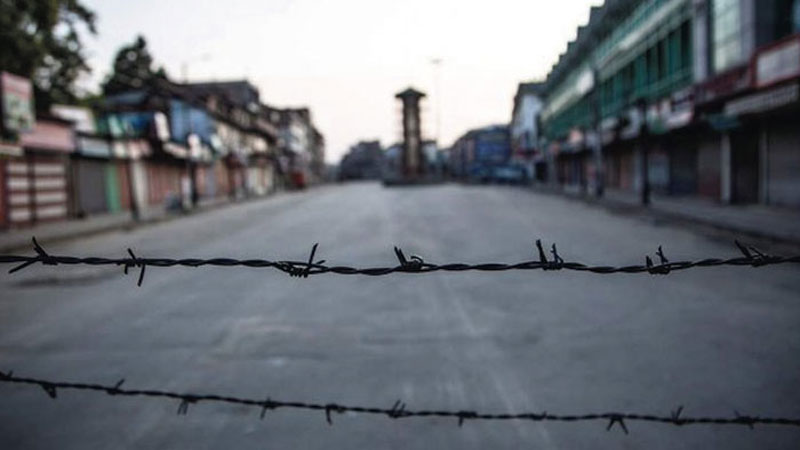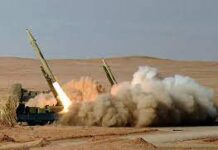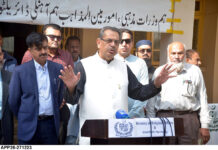
Indian Prime Minister Narendra Modi’s decision in August to change occupied valley’s status and tighten its grip over the region has stoked anger and resentment among Kashmiris.
Just after midnight on Wednesday, the federal government’s orders went into effect, dividing up occupied Jammu and Kashmir into two union territories; one Jammu and Kashmir, and the other the Buddhist-dominated high altitude region of Ladakh. Both will be directly ruled by New Delhi, and new lieutenant governors were sworn at a high-security governor’s premises later on Thursday.
But the most contentious change for many people is the threat of land grabs by Indians outside the region with the formal abrogation of a clause in the Indian constitution that safeguarded Kashmiris’ exclusive right to land ownership. “Everything changes on Thursday,” said a retired Kashmiri judge Hasnain Masoodi, a member of India’s Parliament. “The entire exercise is unconstitutional. The mode and methodology have been undemocratic. People were humiliated and never consulted.”
Masoodi represents the National Conference, a powerful pro-India Kashmiri political group whose leaders have been detained.
India also engaged in a diplomatic war of words with China over Kashmir on Thursday. China, which is locked in a decades-old dispute with India over the part of Kashmir called Ladakh, slammed India for unilaterally changing its status. Chinese Foreign Ministry spokesman Geng Shuang said Kashmir was a dispute left from history that should be peacefully resolved. “The Indian government officially announced the establishment of so-called Jammu Kashmir territory and Ladakh Union Territory which included some of China’s territory into its administrative jurisdiction,” Geng said at a news briefing. “China deplores and firmly opposes it. India unilaterally changes its domestic law and administrative divisions, challenging China’s sovereignty and interests. This is awful and void, and this is not effective in any way and will not change the fact that the area is under China’s actual control.”
India’s foreign ministry spokesman rejected China’s comments and said Kashmir is an integral part of the country and that any reorganization of the state is an internal affair. “We do not expect other countries, including China, to comment on the matters which are internal to India, just as India refrains from commenting on internal issues of other countries,” Raveesh Kumar told a news conference.
Angry protesters took to a main thoroughfare in Azad Jammu and Kashmir’s main city Muzaffarabad on Thursday to condemn the bifurcation into two federal territories. “Down with India” and “We want freedom”, they chanted.













